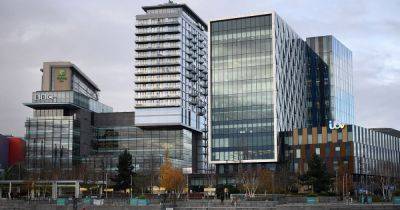It's part of the fabric of our city - but now 'everyone should be concerned'
Protest is woven into the fabric of Manchester. Walk through the city's streets and there are reminders all around.
There is the Peterloo Memorial, remembering the 18 people killed and hundreds more injured when a demonstration of 60,000 working people demanded the right to vote turned into a massacre. There is the statue of Emmeline Pankhurst, founder of the Suffragettes, who fought and died for women's votes.
In more recent history, 20,000 people poured onto Albert Square for a rally against the anti-gay Section 28 policy introduced by Margaret Thatcher's government in 1988. Today, barely a week goes by without at least one demonstration taking place in the city centre.
READ MORE: 'Chemical perfect storm' killed doting dad who walked for hours at night in freezing weather
And across the city - on bins, buses and even the masthead of the Manchester Evening News - the worker bee serves as a symbol of people power and the importance of unity. Protest has improved the lives of working people for centuries and led to freedoms we often take for granted.
But recent years have seen new challenges posed against the right to protest, while attitudes towards demonstration are often negative. It's an irony that Manchester-based barrister Christian Weaver recognises.
"Protest shouldn't really be a political football, it's a fundamental human right," he said. "It's funny that we look at protests in other countries, or protests in history, and really admire it.
"Yet when it's taking place in the current time, it maybe causes an inconvenience in our day-to-day, we see it as something catastrophic. We sometimes lack that ability to compare properly and appreciate that maybe this is what needs to be done now, so that future








